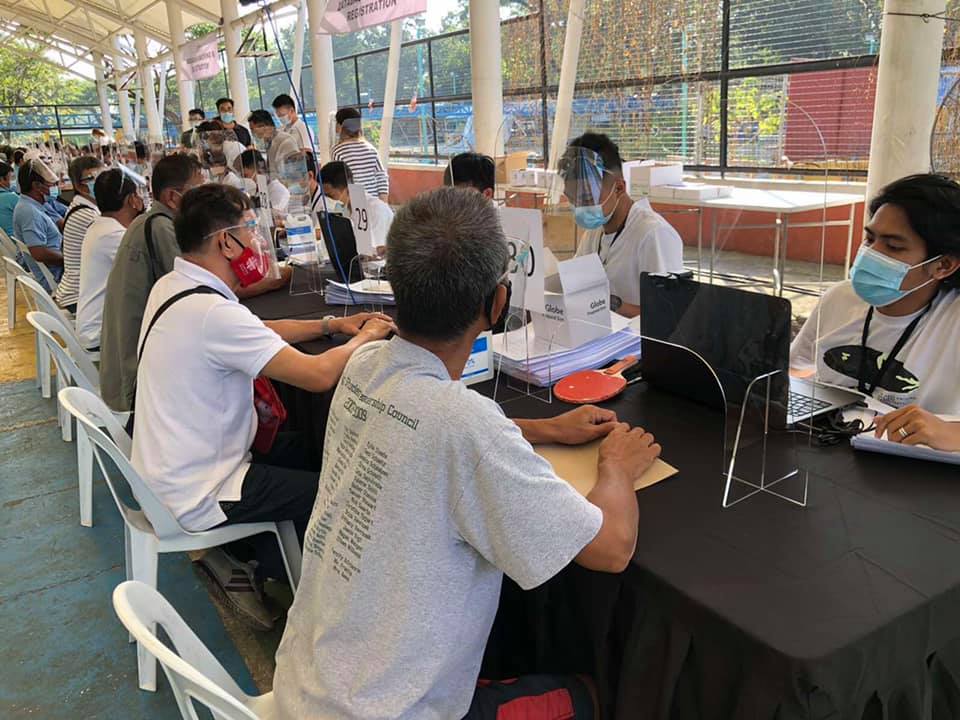News
Over 1.5K drivers join LTFRB’s service contracting program

FILE: Libu-libong drayber ng Traditional Public Utility Jeepneys (PUJ) ang inaasahang lalahok sa General Registration and Orientation Activity ng Service Contracting Program sa Quezon City Memorial Circle, Basketball Covered Court ngayong araw, ika-25 ng Nobyembre 2020. (Photo: Land Transportation Franchising and Regulatory Board – LTFRB/Facebook)
MANILA – A total of 1,520 drivers of traditional public utility jeepneys (TPUJ) have joined the Land Transportation Franchising and Regulatory Board’s (LTFRB) Service Contracting Program (SCP) during its first day of registration and orientation on Wednesday.
In a Facebook post on Thursday, the LTFRB said the program registration, held at the Quezon City Memorial Circle basketball covered court from 8 a.
m. to 5 p.m. until November 29, will provide these drivers with additional pay on top of their daily income from driving.
“Sa ngayon, tanging mga driver ng mga PUV na pumapasada sa mga binuksan nang ruta ang pinapayagan na mag-register (For now, only public utility vehicle drivers plying active routes are allowed to register),” the LTFRB said.
Aside from driving a TPUJ, modern jeepney, or a passenger bus in an active route, LTFRB said interested drivers must bring the original and a photocopy of their driver’s license, a signed certificate from their operator, two photocopies of their operator’s valid ID (front and back) with three signatures, and a photocopy of the original receipt/certificate of registration (OR/CR) of the PUV they are driving.
After registration, qualified drivers are given orientation on the program and assistance with registering for the program’s smartphone application, it added.
It said that the program strictly adheres with Covid-19 safety protocols and all applicants must wear a face mask, face shield, and follow other health measures such as social distancing.
Interested drivers are fill up the program’s online pre-registration form at http://tinyurl.com/ServiceContracting.
The SCP is a program under the LTFRB and the Department of Transportation with a budget of about PHP5.58 billion as part of the Bayanihan to Recover as One Act or “Bayanihan 2.”
The program will provide qualified drivers with PHP11 per kilometer assistance for traditional and modern jeepneys and PHP23.10 per kilometer aid for passenger buses. This is in addition to incentives or demerits based on service quality, commuter feedback, and performance of the driver.





















